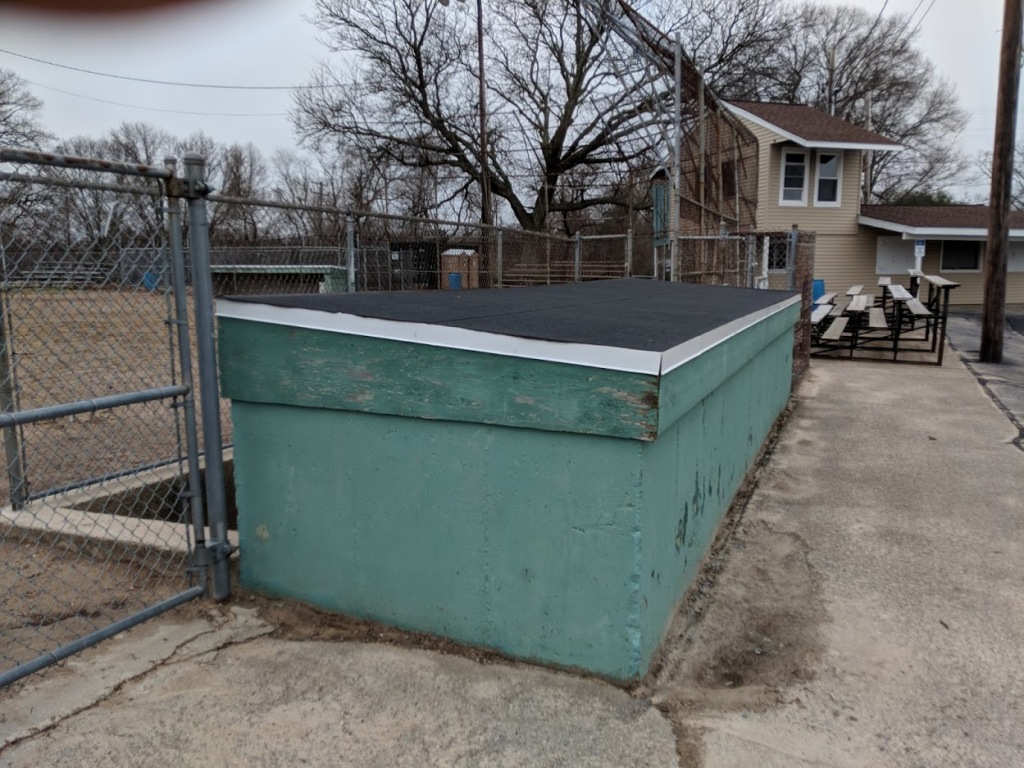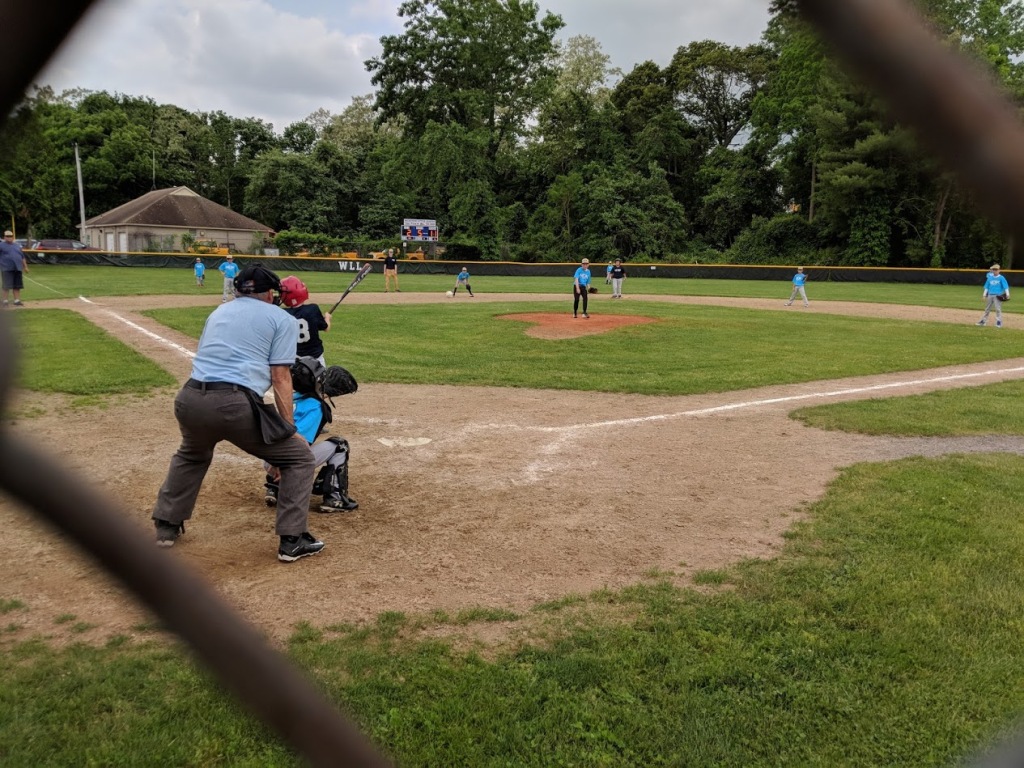A few years ago, I was getting ready to coach a night game for my local youth baseball league when an unfortunate turn of events was presented to me. My team consisted of youth baseball players 12 years old and younger, with the youngest on my team being just over 10 years old. Due to lower than average registration numbers, our roster totaled just 11 players. For this particular game, 2 players were unable to attend, leaving me with the bare minimum required 9 players to play a game. As was customary the day/night before a game, I had emailed my player’s parents to inform them that we would have just 9 players and that everyone should make a concerted effort to attend the game, barring any school, family, or health issues. It just so happened that we were playing the first place team and we were going to be shorthanded with just the 9 players. Still, I hadn’t heard from any parent the day before nor the day of the game that playing was going to be an issue for their son (I had all boys on my team.) So, I was prepared to play the game with 9 players.
Pre-game practice for me was a standard 45 minutes prior to game time. Players were expected to show up in full uniform, play catch, run, do jumping jacks, get some hitting practice, get into a game ready mental state – sort of standard youth baseball pre-game ritualistic stuff. As I was working with the team during pre-game, I noticed that only 8 of my players were present. Delays can happen due to traffic, parents’ work situations, missing hats, etc. so I was typically fairly lenient with the 45 minute request. At or around 20 minutes before game time, I started to get a little nervous that we might be short a player. I did a head count and realized who was missing. I instructed my assistant coach to continue with drills while I went to make a phone call to the missing player’s parents. I found my cellphone on the top shelf inside the visitor’s dugout and dialed the parent’s number. Strangely, I heard a loud ring tone just outside the dugout and walked towards it to see if this was a coincidence or perhaps, even, the player’s parent.

Outside our visitor’s dugout, I saw my 9th player, sitting with his hat on, head down, in full uniform, knees curled up to his chest, glove on the ground, arms hugging his knees leaning up against the brick structure of the dugout. I looked up at his mother who was holding her cell phone showing my name and phone number “Coach Noel.” I paused a moment and took in the situation, trying to find the right words to start. “Hey, ______. Hi Mrs. _______” I opened the conversation and looked for a response from my player or his mother. Nothing from my player, no reaction at all, but his mother did motion me with her head to walk with her. So, we walked towards an open area away from _______, next to the batting cages, which were empty at that point in the pre-game. “Hi, what is going on here, is _______ okay?” I asked Mrs. _________. “My son is not ready to play and wanted to ask you if there was any way he could sit out the game, maybe just sit on the bench,” said Mrs. ________ with a heavy heart. I could see she was upset and very anxious about the entire situation. I responded “Is he hurt? What do you mean he is not ready to play?” Mrs. ______ took a deep breathe and exhaled with “Okay, let me explain. There is a boy on the other team who bullies my son at school. Every day. Every year at ________ Elementary. He sees my son in the hallway and knocks the books out of his hands. He teases my son with verbal abuse. He yells out to him, all sorts of names and insults. He mentioned the game tonight and that he would be pitching and that _____ better watch out at the plate.”
I took a small step to the left of Mrs _____ to process this troubling information, wanting desperately to be compassionate and sympathetic and supportive and remain rational despite an inner rage building in defense of my player. I actually knew the bully whom Mrs. ______ was referring to and took a glance over my shoulder to see where he was on the field. I took a deep breathe and returned to face Mrs. _______. “First off, your son is none of those insults or names or anything that ________ said about him. I’m sorry that he has to endure that in a place of learning. He is a smart kid with a great future in whatever he decides to be. Second, there maybe a possibility of _______ playing in the game but not having to bat and face ______. He could just play a position in the field, and let the game happen. Perhaps, with the game in motion, he might feel better about going to the plate? Especially if _____ is not on the mound. What do you think, should we ask him?”

Mrs. ______ nodded, not really 100% confident with my proposal, and we began to walk back to ______ who was still sitting in the same position leaned up against the dugout. I squatted down in a catcher-like stance in front of ______ and ran through the potential playing scenario with him. I didn’t mention the bully or what his mom and I spoke about. Just that he could play a major role on our team and that we needed him. He was important to our team and he was a valuable member of our team this season. Without lifting his head, he began to nod and reached for his glove. I then nodded to Mrs. ________ and promised that I would protect him and take it from here. With that, ________ and I entered the visitor’s dugout where I found my starting lineup card. I added _______ in the 9th place in the batting order, playing 3rd base to start the game. The rest of the team was running into the dugout as __________ and I entered the dugout. I had my son grab a baseball and play catch with ______ so that ______ could be begin the process of getting his body and mind into game mode. I took the lineup card and met the umpires and opposing manager at home plate for game instructions, rules, and to shake hands. After meeting with the umpires, I asked the opposing manager, a friend of mine, who he was pitching tonight. I was relieved to learn that ______ had an AAU game the next morning and he would not be pitching in the game.
I walked back to the dugout and motioned to _______ and my son to come into the dugout for my customary “pep talk.” As I went through my Rolodex of positive vibes, positive statements, and rah-rah comments, I slipped in the fact that ________ would not be pitching today. I looked over at _______ and gave him a wink and I caught a smile starting to emerge on his face. His hat, which had been pulled down over his eyes, was then shifted to the back of his head and then back down into a normal position on his head. When we did the team cheer, his hand was the first in the circle of hands, and I feel like his voice was the loudest when, after “1-2-3”, our team yelled out “Wickford!!!!!” The stress and anxiety and nerves leading up to the game had been replaced with a big smile and a “let’s get out there now and play” mentality.

My awesome 9 players played all 7 innings. Each played an important role defensively in the infield and outfield, on the mound, behind the plate, at bat, including ________. After each inning, he ran out to his position in the field with his head held high. After each inning defensively, he ran into the dugout to be with his teammates. I checked in on him from time to time during the game, giving him an extra high five on the bench or on his way into the dugout from his defensive position. But soon enough, I felt like he was in the groove of the game. I can’t recall if he got a hit or not but he did bat 4 times in the game. When it was his turn to bat, he was attentive and ready to hit and ready to make an impact. He wasn’t nervous or anxious or worried about who was on the mound. He was just an 11 year old kid, playing baseball in Wickford, RI, on a Friday night in May. He wasn’t all those awful insults that _______ had screamed at him. He was an important player on a youth baseball team.
We lost that game by almost 10 runs that night. In fact, the score was nowhere indicative to how lopsided the contest was. Clearly, the other team was far superior talent wise to my team. However. the score didn’t matter one bit to me. I was so happy for Mrs. ______ and her son that night, that he overcame his stress and anxiety and got out on the field. I was so happy that he discovered that he was important and he wasn’t a loser, like that bully had suggested for so many years. Inside the outfield and foul line fences, inside the base paths, inside the walls of a school – no one should bully another person for any reason. The transformation of a scared kid, hat down, knees pressed up against his chest, leaning against the dugout to a smiling, energetic kid sprinting out to left field is one of the happiest moments I have experienced in my many, many years of coaching.

Leave a Reply